SuperCash: The New Hedge Fund Capitalism
$19.56
In SuperCash: The New Hedge Fund Capitalism, hedge fund manager James Altucher examines the many new types of investments that have been developed over the past few years by top hedge funds and investors around the world. Through detailed examples and up-to-the-minute advice, Altucher reveals how you can take advantage of these investments and offers a dozen strategies that can be used to supersize your returns.
Introduction:
SuperCash takes it one step further by examining all of the new types of investments that have been developed over the past few years by the top hedge funds and investors in the world, including asset-backed lending, PIPEs, closed-end fund arbitrage, new types of IPOs, and even securitizing the cash flows from elevator music. In the following chapters, I will show you how savvy traders and hedge fund managers are turning cash into supercash in today’s tough markets. We’ll look at the following topics and strategies for supersizing returns:
- Hedge funds as the new banks. Hedge funds are feasting on the scraps from banks. Banks will not do short-term debt, they will not do hard-to-collect loans, they will not take risks on microcap companies, and so on. So hedge funds have become the new banks on everything from subprime auto financing to trade factoring, hard-money real estate lending, tax lien investing, life insurance premium financing, and more.
- Activism. Much has been written about so-called “value traps,” stocks that have all the characteristics of value stocks (i.e., low P/E ratios, steady earnings, great balance sheets) but never seem to move higher. Sometimes the reasons for the trap are clear—management has become entrenched and lost whatever competency it ever had in terms of bringing value to shareholders. Or sometimes the reason is more insidious—management is raping the company blind and not leaving much excess cash flow for investors. Activists invest in deep value situations where they think management is, for whatever reasons, refusing to unlock that value. The activists then begin communicating with management, expressing their opinion on how to extract value, and then, in the worst case, attempting to change things forcefully, either by taking over the board of directors of the company or by taking over the entire company. Although it is difficult for the typical retail investor to be an activist investor, it is possible to piggyback on the coattails of larger activists and to learn about their investment philosophies and activities through their very public SEC filings which document their approach.
- Delinquent credit card debt. Hedge funds have become the credit card issuers of last resort. While you can’t get a VISA card from a hedge fund, they may be the holder of the outstanding balance on your card. Some banks have been unable to collect on bad debt and are now wrapping up the delinquent debt in securitized paper and selling it off to hedge funds, who then outsource the collection.
- PIPEs. Private investments in public equities (PIPEs) have been quietly replacing the traditional secondary offering as the financing of choice for many small cap and mid cap public companies. Rather than paying an investment bank 7 percent or more in fees, dealing with expensive SEC filings, and going on six-month road shows while everyone shorts your stock, public companies are opting to raise money by going directly to hedge funds, negotiating terms, and closing financings in a matter of days or weeks rather than months. Chapter 4 examines the various deal structures that have become popular and the post-deal performance of these PIPEs.
- A new approach with IPOs. The large banks and brokerages used to have the monopoly on IPOs and the profits that could be gained by investing in those IPOs and then flipping them on IPO day. But a new crop of IPOs has sprung up, simultaneously taking some power away from the blue chip investment banks and giving some power back to the retail investor. Chapter 5 looks at Dutch auctions, pioneered by investment firm WR Hambrecht, and the 90 percent or higher returns garnered by this strategy. I also examine how reverse mergers don’t deserve the reputation they’ve garnered over the years, and look at an unusual innovation combining private equity with the IPO—the specialty acquisitions corporation (SPAC). And More…
Contents:
- Hedge Funds Are the New Banks
- Activism
- Buying Delinquent Credit Card Debt
- Everything You Wanted to Know about PIPEs But Were Afraid to Ask
- The New New IPO
- Trade like a Billionaire
- Closed-End Fund Arbitrage
- Short-Selling
- The Finer Things in Life
- Trend versus Countertrend
- The Myth of the Index, or ETFs: Active or Passive?
- Watch Out!
- So You Want to Start a Hedge Fund?
- Classic Investment Reading and New Media Resources
- Where to Find the Data
SuperCash: The New Hedge Fund Capitalism By James Altucher pdf
| Author(s) | |
|---|---|
| Format | |
| Pages | 225 |
| Publication Year | 2006 |
6 reviews for SuperCash: The New Hedge Fund Capitalism
Only logged in customers who have purchased this product may leave a review.


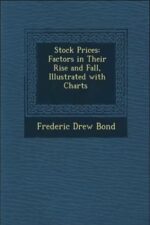
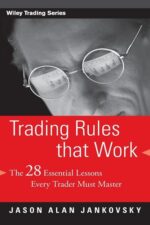
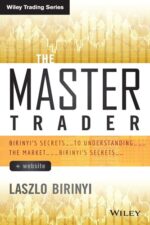


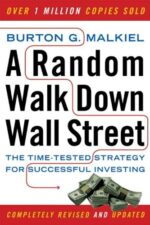

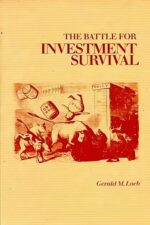
Kash Roach (verified owner) –
James Altucher is scary smart, and also a font of great and original ideas. So it’s no surprise that SuperCa$h is so much fun to read and so devilishly informative. It is equally full of ‘holy cow!’ moments and ‘why-didn’t-I-think-of-that?’ moments. A true keeper.
Heath Ballard (verified owner) –
Wow, this is a really good book about learning what other market participants, such as hedge funds, are doing and where they are investing their money. As more hedge funds are created, the opportunities to invest in many areas are shrinking, so they have to find other ways to generate returns. This illustrates some of their new methods. For example, when banks are refusing to lend to some individuals and businesses, some hedge funds are stepping in to fill in the gap. Another example is PIPEs (Private Investments in Public Equities) where public companies, instead going through investment banking firms to raise more capital, simply go straight to hedge funds to negotiate terms, and as a result, close transactions much more quickly.
I absolutely loved this book. Even though I will not be using most of the techniques in the book, I still found it extremely educational. James Altucher is superb. I like most of his books. I would also recommend The Forever Portfolio.
Heath Ballard (verified owner) –
It never fails, I go on vacation it hits the fan.( I’m writing this on July 28th 2007 after the DJIA was down 4.2% the previous week and the Russell 2000 dropped 4.9%.) Every single time. Well in chaos there is opportunity. Coincidentally as the markets melting down I’m reading “Super Cash” by James Altucher and I should share his QQQQ Crash Revisited chapter; its revisited from his previous book, “Trade Like a Hedge Fund”. In short it states that most of the time, in fact all the time from his sample timeframe of June 2003 – April 15th 2005 when the Q’s drop over 1.5 standard deviations below the 10 day moving average (if you don’t get that – it happened last week) it bounces – 55 of the last 55 times (at least short term.) This is an over simplification but it basically says to “buy the panic”
If you take the NASDAQ 100 stock from Jan 1 1999 to Dec 31 2004 their were 3715 instances of this occurring (stocks dropping 1.5 standard deviations below their 10 day moving average) and if you bought them on the next morning and held until they were profitable or 20 days – whichever happened first, you would have made money on 3,518 of them or 94.7% turning $1 million into about $9 million if you traded all of them and used 5% of the equity on each trade.
The book is good and I recommend it! It helps you learn to go against the crowd.
Zain Marks (verified owner) –
Instead of discussing how super hedge funds like those operated by Buffet, Soros, Tudor profit big, it is dedicated to uncommon means/stratgies (I cant agree with the author that 1) the ideas were new, 2) his adoption of the term hedge fund to simply all funds covered) including PIPE (private investment in public equities, reverse merger, IPOs – SPAC (the speciality acquisitions corp), Dutch (IPO) Auctions, closed end fund arbritrage, following Billionaires’ micro-cap portfolio, activism, stocks just kicked out from indexes for “seasonal” factors, coins, paintings, NY taxi medallions and even delinquent credit card debt etc etc. Okay as a supplementary reading for ideas, but definitely not to be taken as a main course. For those who wanna read to learn more on hedge fund, “Hedgehogging” by Barton Biggs (2006) is a much suitable choice.
For those who have not read the author’s first book “Trade like a Hedge Fund: 20 Successful Uncorrelated Strategies & Techniques to Winning Profits” yet, I strongly recommend you to read that first. Your liking of that is a strong indicator of your preference to this. In case you dislike that one, please give this a pass.
Alejandra Carr (verified owner) –
Dated info, but source of some good ideas
Lyanna Shah (verified owner) –
James Altucher’s third book, Supercash, is an ode signifying that the days of buy-and-hold are over. As easy-to-find alpha has been squelched in today’s crowded, competitive markets, the next generation of hedge funds is devising more creative and unconventional techniques. Supercash examines these techniques and provides and interesting scoop into the cutting edge of Wall Street strategy.
Some of the topics covered in this book may sound familiar: shareholder activism, lending money to clientele too risky or illiquid for the average bank, and piggybacking the Wall Street titans. However, Supercash also introduces a number of more exotic forms of investing that rarely get press: PIPEs, investing in rare art and collectibles, as well as a few quantitative or statistical-based ideas. Most of these innovative strategies leverage the scale and financial wizardry only available to a hedge fund, and therefore most of this book is of little use to the average retail investor.
I must admit that a few ideas are presented in an opinionated light, as I disagreed with Altucher’s defensive stance on short selling. Also, given the book was written before the recent global credit disaster, it would be interesting to read a follow-up on some of the credit-based strategies. My favorite chapter is “So You Want to Start a Hedge Fund,” which provides some wisdom into the difficulties of launching your own fund. Surprisingly, accomplishing success sounds easier than you might think, but is also less lucrative than you might think. Supercash would probably be of little help to Average Joe’s Ameritrade account, but is no doubt a fascinating read to Wall Street buffs and those who just like to learn about making money.